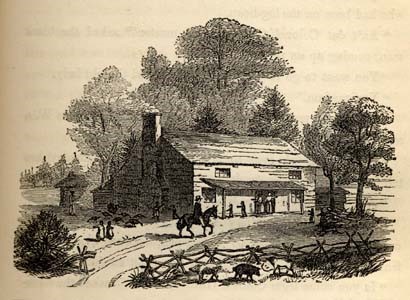
This year we have new tax laws, the federal government closed for the longest period ever, and everyone is complaining. But I found an incredible letter from Henry Banta, the first Hunt County Tax Accessor and Collector to the State Comptroller recently. While it was originally hand written and well over 150 years old, here is a transcription I made.
Hunt County, Texas
Sir in Answer to your Last Communication to me I now take the Liberty to answer as regards the assessment of the Past year. You seem to think strange of the small amount enclosed therein but Sir, I have to say to you that at the election of July 1846 (to organize the county) there was but 54 votes polled in this county and the assessment for the past year was certainly fair and correct the amount that was forwarded to your office was the exact amount assessed by me for the past year. (For) one thing the line between Hunt and Henderson was not established at the time the assessment was made and the assessor of Henderson County came over where the line was afterwards established and assess Several of the citizens which after the line was Established was in this county. Also the county court examined all of my proceeding parts (particular) and closely before they gave me a certificate for the same and they was certainly sure that it was just and true or they would not certified they was Right to the Balance of the assessment I mailed for your office on the 12th of this month. You will Please direct further communication to me
To Greenville, Hunt County.
This was written early in 1847. What Henry Banta did not mention was that in 1846 Hunt County didn’t even have a county seat. The location was still in debate. There was no courthouse. County boundary lines were not run. Yet the Comptroller wanted his money.
The 54 votes in July of 1846 were those of the 54 white men age twenty-one and over who could legally vote. By December of that year, those same men and maybe a few more voted to accept the donation of M. H. Wright for the present site of the courthouse; the downtown area known as Original Townsite. But there was no courthouse at the time Banta wrote the letter.
It appears that Banta sent an amount of money to Austin by mail. Sometimes the Tax Collector took it to Austin by himself, but this was a rather dangerous trip. Mail was equally unreliable. It often remained at a “post office” for days if the stage coach lacked enough room for both passengers and mail. The “post office” was not a stand-alone structure but a simple box in corner of a mercantile store. There were no boxes like we see today. To get your mail, you rifled through the box of letters and packages until you found what you wanted. Maybe that was why some tax collectors took the tax money to Austin themselves.
